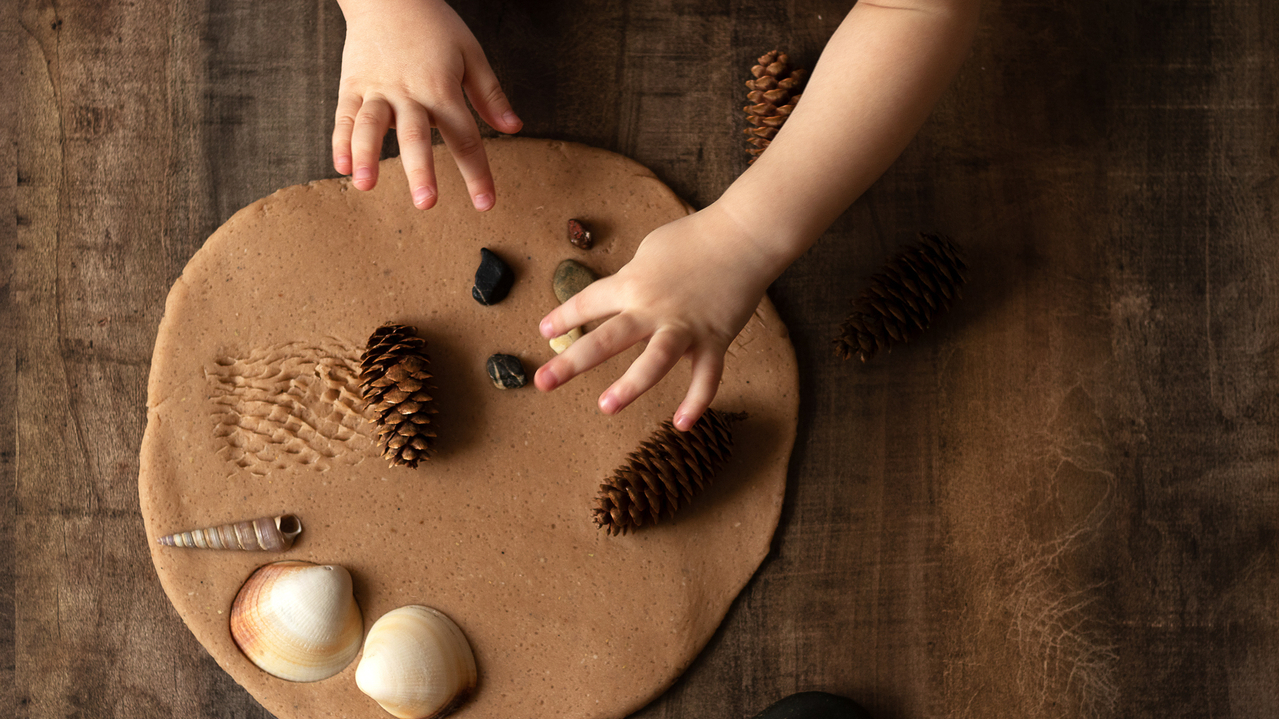Children Benefit from Loose Parts Play
- Written by: Lynne Lafave and Samira Ali

“Sticks are one of the most important materials for creative play and flexible thinking.” ~ Spring Play Outdoors Magazine 2021
Have you noticed that children quickly get bored of their toys after they learn how to use them? Children often lose interest in objects that only serve a single purpose.1 Once they feel they have mastered the function of a toy, they get bored and seek new challenges. It is why some kids are more fascinated by the box the toy comes in, rather than the toy itself. Integrating loose parts into early learning child care centres can promote creativity, imagination, and positive social behaviours!
Loose parts are play objects that are open-ended; you can move and manipulate them in a variety of ways.2-4 They can be used as an opportunity to promote unstructured child-led play within a home or child care centre.
Benefits of Loose Parts in Child Care Centres
Promotes Unstructured Child-Led Play
Children do not always need instructions or guidance from adults while playing. When children have exposure to intriguing loose parts, they become curious and begin tinkering around with the objects to explore the possibilities.5 These unique experiences inspire children to alternate ways of thinking and discoveries that may not be possible in the indoor environment. Children are curious, creative, and imaginative – they will find a way to turn very basic objects into activities that will keep them focused.
Affordable and Easily Accessible
One of the great things about loose part plays is that these objects are so easy to find. Recycled items like cardboard tubes, pieces of string, or clothes pegs/pins might be repurposed for play. It is not necessary to purchase expensive materials. Ask families to donate things like cardboard tubes or boxes, empty egg cartons, wine corks, newspapers, or empty plastic bottles. Utilize materials found in nature, such as sticks, rocks, pinecones, or leaves.1
Promotes Positive Social Behaviours
When children engage in unstructured child-led play, they often want to play together. By allowing children to lead their playtime with loose parts, they can come up with some incredible activities that involve others. Children will likely practice leadership skills, taking turns, cooperation, problem-solving, and inclusion of others.5
"Providing children with loose parts can expand their imaginations and positively influence their cognitive, social, emotional, and physical development."
References
-
Play Outdoors Magazine. (Spring 2021). Play Outdoors Magazine, 1, 1-56.
-
Daly, L., & Beloglovsky, M. (2015). Introducing loose parts to preschoolers. Teaching Young Children, 9(1), 18–21.
-
Nicholson, S. (1971). How not to cheat children: The theory of loose parts. Landscape Architecture, 62, 30–35.
-
Maxwell, L. E., Mitchell, M. R., & Evans, G. W. (2008). Effects of play equipment and loose parts on preschool children’s outdoor play behavior: An observational study and design intervention. Children, Youth, & Environments, 18(2), 36–63. doi: 10.7721/ chilyoutenvi.18.2.0036
-
Flannigan, C., & Dietze, B. (2017). Children, Outdoor Play, and Loose Parts. Journal of Childhood Studies, 42(4), 53-60.